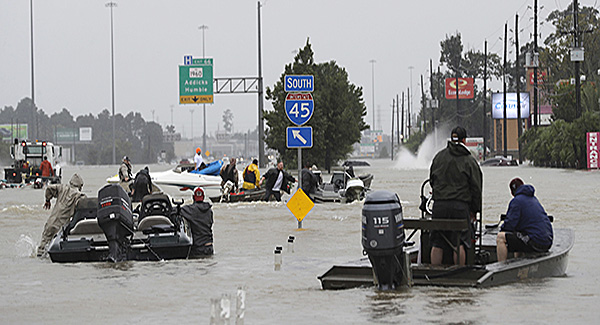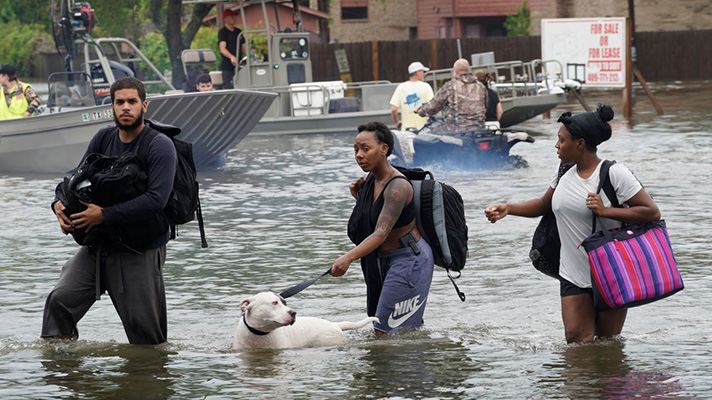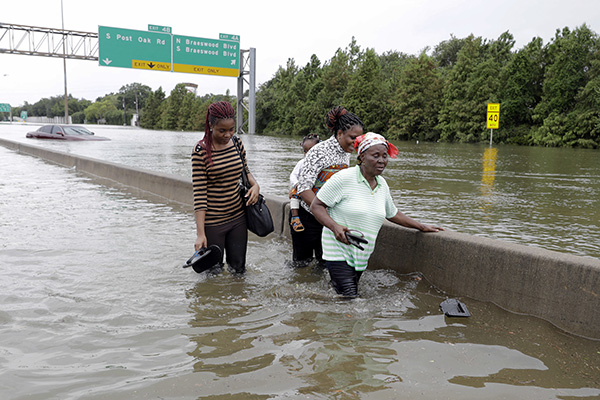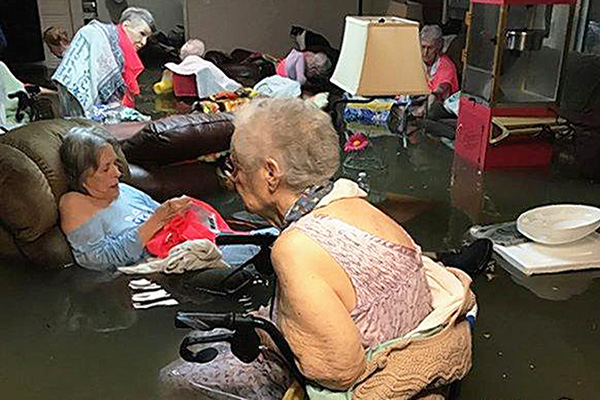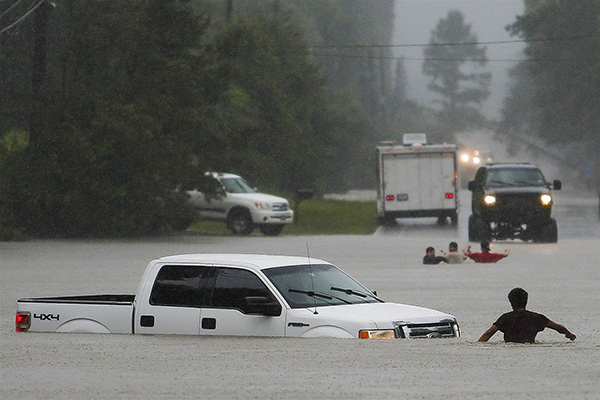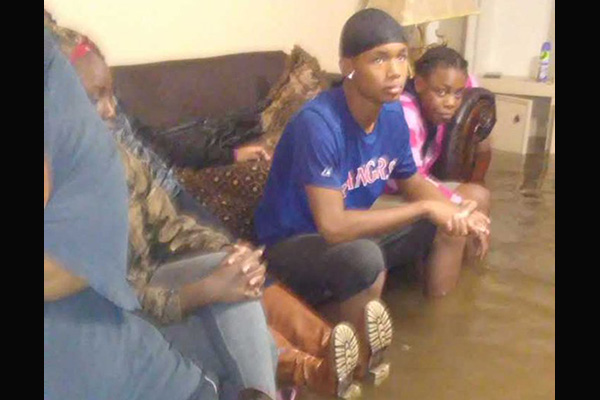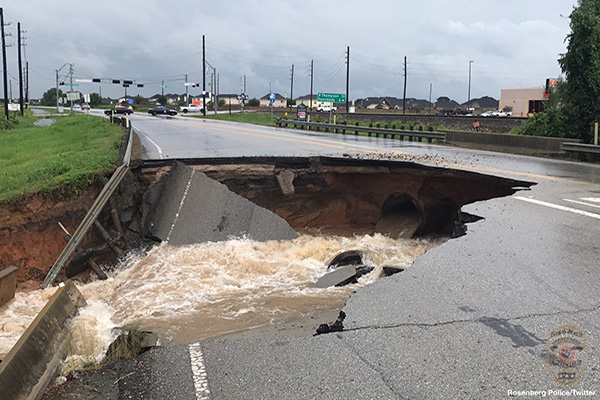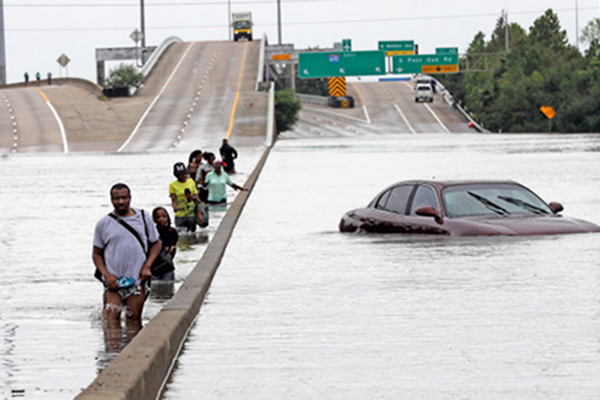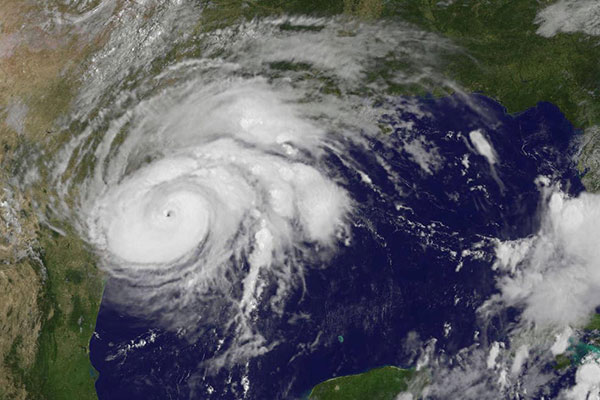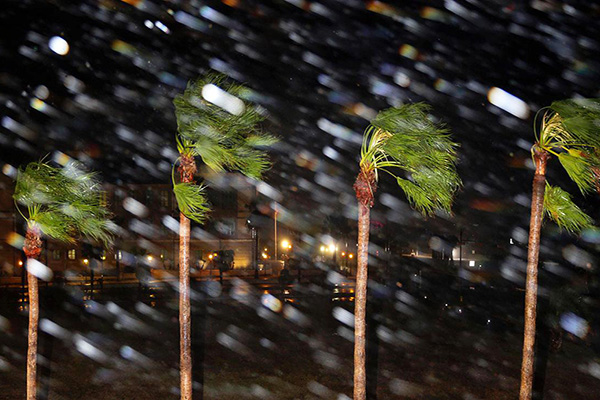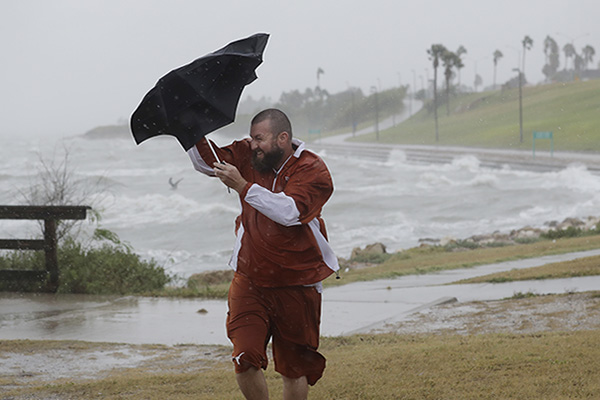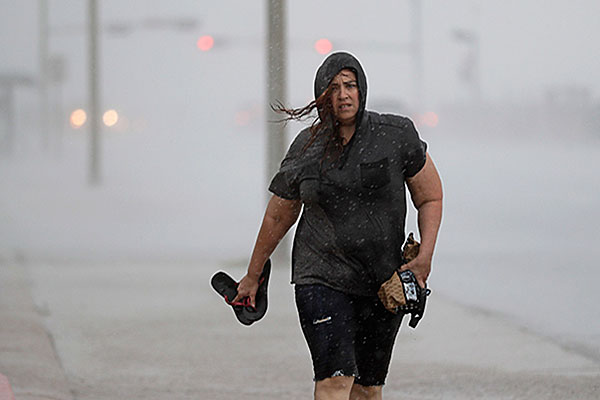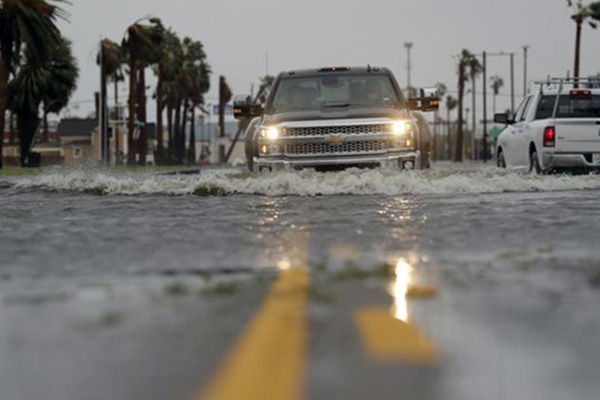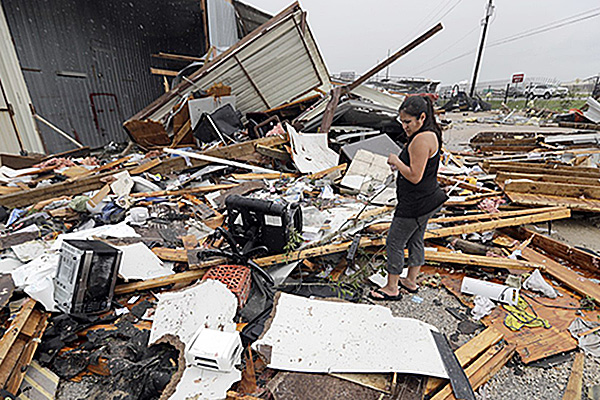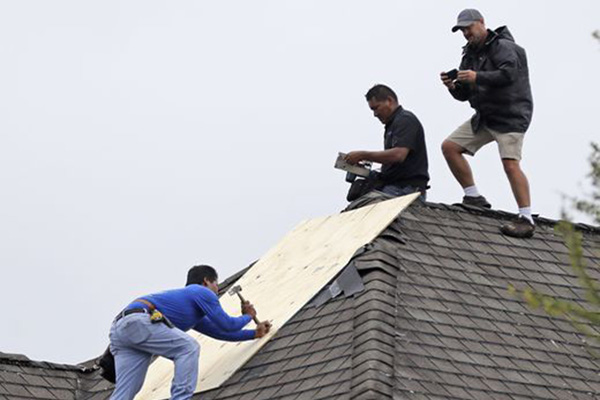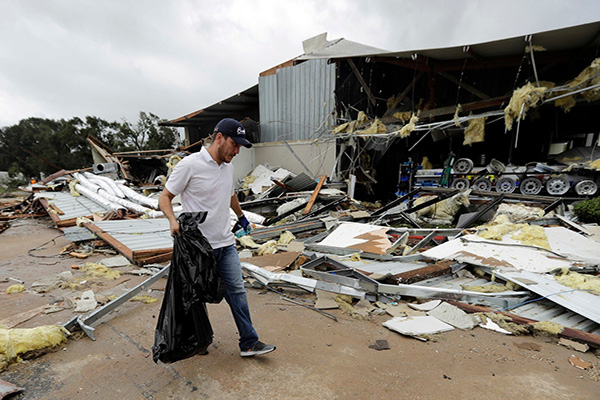Update on Hurricane Harvey, Saturday Night:
Enormous Destruction Already...but the Worst May Be Yet to Come
August 26, 2017 | Revolution Newspaper | revcom.us
Hurricane Harvey tore into the Texas coast late Friday night, just northeast of Corpus Christi. At this writing, it is difficult to determine the extent of damage Harvey has caused. But it is certain that the slow-moving storm has already wreaked enormous destruction on Corpus Christi and smaller coastal towns. And the worst may be yet to come in the days ahead, including in Houston, the fourth-largest city in the U.S.
At least one person has been reported dead because of the storm. Countless homes and businesses have been destroyed or damaged. Winds uprooted giant oak trees, and were recorded at 132 miles per hour in the town of Port Aransas. The Electric Reliability Council, which oversees Texas’ electrical grid, reported that hundreds of thousands of people were without power by Saturday morning; about 200,000 in the Corpus Christi area alone.
The mayor pro tem of the coastal town of Rockport, which has a population of about 10,000, advised residents who didn’t or couldn’t evacuate that they should “make some type of preparation to mark their arm with a Sharpie pen. Put their Social Security number on it, and their name”—so their corpses could be identified. After the storm hit, the mayor told CNN the town has suffered “widespread devastation” and that the authorities haven’t conducted home checks or searches for people injured or killed by the storm. He said, “We’ve already taken a severe blow from the storm but we’re anticipating another one” from flooding in the storm’s aftermath.
What’s Important Under This Capitalist System
A natural disaster like Harvey reveals some fundamental things about the society in which it occurs—important things about the economic and social relations of that society, and what the people who dominate it value. Even in the early stages of this storm, when much about the extent of damage is unclear and the destruction is far from finished, some truths are coming into focus.
The heaviest rains have only begun to pound the Houston area. Predictions are that they will continue for several days. Houston is a flat, low-lying city with numerous bayous—sluggish, brackish streams that ribbon the entire metropolitan area. They are prone to overflowing even during the intense but frequent storms that hit the area, and often flood entire sections of the city. Now some of the bayous are already topping their banks, and as much as 20 more inches of rain is expected. How many of the almost six-and-a-half-million people in the Houston area will lose their homes, their vehicles—even their lives—is yet to be determined.
Texas governor Greg Abbott advised people in Houston to evacuate: “If I were living in the Houston region, as I once did, I would decide to head to areas north of there.” Meanwhile, Houston mayor Sylvester Turner told people to stay put, and his view was echoed by an official with the federal Office of Homeland Security: “Local officials know best. Houston has no evacuation order.” This was not a personal dispute. It was an expression of the fact that there has been no systematic, overall plan of preparing for a predictable environmental and human catastrophe in a heavily populated and sprawling metropolitan area.
This is an area where, as an article by ProPublica and the Texas Tribune put it last year, the question is “not if, but when Houston’s perfect storm will hit.” Buffalo Bayou has been dredged, widened, and renamed the Houston Ship Channel. It is “one of the world’s busiest shipping lanes. Flanked by 10 major refineries—including the nation’s largest—and dozens of chemical manufacturing plants, the Ship Channel is a crucial transportation route for crude oil and other key products, such as plastics and pesticides.”
There is a great possibility that a storm like Harvey—with storm surges pushing in from the Gulf of Mexico and Galveston Bay, and massive flooding coming uncontrolled down Buffalo Bayou—can trigger an environmental catastrophe... for the people who live in the area, and for the fragile and already threatened ecosystems off Galveston Bay and the gulf and the wetlands around them. The Texas Gulf Coast is home to what an article in the Guardian described as “an astonishing range of life, from fish and amphibians to the birds that stop over during migrations along the great Central Flyway from South American winter habitats to arctic nesting grounds. What happens to the dunes, estuaries and marshes along the upper Gulf Coast can be felt across the entire hemisphere for years.”
Government officials and commentary in business publications have expressed concern that a storm-caused disruption to production and shipping along the Houston Ship Channel would be disruptive to the global (capitalist) economy, and to the profitability of the corporations with facilities there. A major storm that hits the Ship Channel could even “kill America’s economy,” one Republican congressman claimed. But as the authors of the Texas Tribune/ProPublica article pointed out, “For all its economic importance, though, the Ship Channel also is the perfect conduit to transport massive storm surge into an industrial area that also is densely populated. ... the Ship Channel itself ... would probably be littered with debris and toxins.” This has happened in previous storms which were less destructive than Harvey is poised to become.
Hurricane Ike hit Houston in 2008. It wasn’t as powerful as Harvey. According to an NBC News account, “In the days before and after the deadly storm, companies and residents reported at least 448 releases of oil, gasoline and dozens of other substances into the air and water and onto the ground in Louisiana and Texas. The hardest hit places were industrial centers near Houston and Port Arthur, Texas ... ‘We are dealing with a multitude of different types of pollution here ... everything from diesel in the water to gasoline to things like household chemicals,’ a Coast Guard officer said.” These toxins caused “widespread environmental damage ... ripping through the region’s barrier islands, washing debris into Galveston Bay and the Gulf, and imperiling animals, fish and plants by pouring excessive amounts of saltwater into marshes.”
This system of capitalism-imperialism is hell-bent on maximizing profit. Its representatives and leaders are focused on preserving its profitability during times of stress, and fearful of disruptions that threaten its functioning. They take some measures to protect and insure their investments—while doing next to nothing to undertake preparations that would safeguard against environmental destruction and the damage to human and other life that entails.
It is a system that has long outlived its time.
Check back at revcom.us for further continuing coverage of Hurricane Harvey.
Volunteers Needed... for revcom.us and Revolution
If you like this article, subscribe, donate to and sustain Revolution newspaper.

